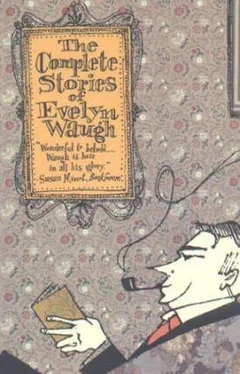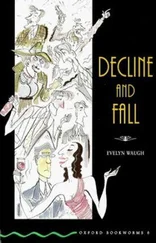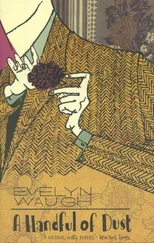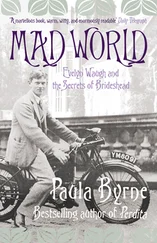Evelyn Waugh - The Complete Stories Of Evelyn Waugh
Здесь есть возможность читать онлайн «Evelyn Waugh - The Complete Stories Of Evelyn Waugh» весь текст электронной книги совершенно бесплатно (целиком полную версию без сокращений). В некоторых случаях можно слушать аудио, скачать через торрент в формате fb2 и присутствует краткое содержание. Год выпуска: 1998, ISBN: 1998, Жанр: Классическая проза, на английском языке. Описание произведения, (предисловие) а так же отзывы посетителей доступны на портале библиотеки ЛибКат.
- Название:The Complete Stories Of Evelyn Waugh
- Автор:
- Жанр:
- Год:1998
- ISBN:0-316-92546-2
- Рейтинг книги:3 / 5. Голосов: 1
-
Избранное:Добавить в избранное
- Отзывы:
-
Ваша оценка:
- 60
- 1
- 2
- 3
- 4
- 5
The Complete Stories Of Evelyn Waugh: краткое содержание, описание и аннотация
Предлагаем к чтению аннотацию, описание, краткое содержание или предисловие (зависит от того, что написал сам автор книги «The Complete Stories Of Evelyn Waugh»). Если вы не нашли необходимую информацию о книге — напишите в комментариях, мы постараемся отыскать её.
The Complete Stories Of Evelyn Waugh — читать онлайн бесплатно полную книгу (весь текст) целиком
Ниже представлен текст книги, разбитый по страницам. Система сохранения места последней прочитанной страницы, позволяет с удобством читать онлайн бесплатно книгу «The Complete Stories Of Evelyn Waugh», без необходимости каждый раз заново искать на чём Вы остановились. Поставьте закладку, и сможете в любой момент перейти на страницу, на которой закончили чтение.
Интервал:
Закладка:
II
The Marquess of Stayle did not come in to luncheon.
“I am afraid you may find him rather shy at first,” explained the Duke. “We did not tell him about your coming until this morning. We were afraid it might unsettle him. As it is he is a little upset about it. Have you seen him since breakfast, my dear?”
“Don’t you think,” said Lady Gertrude, “that Mr. Vaughan had better know the truth about Stayle? He is bound to discover it soon.”
The Duke sighed: “The truth is, Mr. Vaughan, that my grandson is not quite right in his head. Not mad, you understand, but noticeably underdeveloped.”
I nodded. “I gathered from my godmother that he was a little backward.”
“That is largely why he never went to school. He went to a private school once for two terms, but he was very unhappy and the fees were very high; so I took him away. Since then he has had no regular education.”
“No education of any sort, dear,” said Lady Gertrude gently.
“Well, it practically amounts to that. And it is a sad state of affairs, as you will readily understand. You see, the boy will succeed me and—well, it is very unfortunate. Now there is quite a large sum of money which his mother left for the boy’s education. Nothing has been done with it—to tell you the truth, I had forgotten all about it until my lawyer reminded me of it the other day. It is about thirteen hundred pounds by now, I think. I have talked the matter over with Lady Emily and Lady Gertrude, and we came to the conclusion that the best thing to do would be to send him abroad for a year with a tutor. It might make a difference. Anyway, we shall feel that we have done our duty by the boy.” (It seemed to me odd that they should feel that about it, but I said nothing.) “You will probably have to get him some clothes too. You see he has never been about much, and we have let him run wild a little, I am afraid.”
When luncheon was over they brought out a large box of peppermint creams. Lady Emily ate five.
III
Well, I had been sent down from Oxford with every circumstance of discredit, and it did not become me to be over nice; still, to spend a year conducting a lunatic nobleman about Europe was rather more than I had bargained for. I had practically made up my mind to risk my godmother’s displeasure and throw up the post while there was still time, when the young man made his appearance.
He stood at the door of the dining room surveying the four of us, acutely ill at ease but with a certain insolence.
“Hullo, have you finished lunch? May I have some peppermints, Aunt Emily?”
He was not a bad-looking youth at all, slightly over middle height, and he spoke with that rather agreeable intonation that gentlepeople acquire who live among servants and farm hands. His clothes, with which he had obviously been at some pains, were unbelievable—a shiny blue suit with four buttons, much too small for him, showing several inches of wrinkled woollen sock and white flannel shirt. Above this he had put on a stiff evening collar and a very narrow tie, tied in a sailor-knot. His hair was far too long, and he had been putting water on it. But for all this he did not look mad.
“Come and say ‘How do you do?’ to your new tutor,” said Lady Gertrude, as though to a child of six. “Give him your right hand—that’s it.”
He came awkwardly towards me, holding out his hand, then put it behind him and then shot it out again suddenly, leaning his body forward as he did so. I felt a sudden shame for this poor ungraceful creature.
“How-d’you-do?” he said. “I expect they forgot to send the car for you, didn’t they? The last tutor walked out and didn’t get here until half past two. Then they said I was mad, so he went away again. Have they told you I’m mad yet?”
“No,” I said decidedly, “of course not.”
“Well, they will then. But perhaps they have already, and you didn’t like to tell me. You’re a gentleman, aren’t you? That’s what grandfather said: ‘He’s a bad hat, but at least he’s a gentleman.’ But you needn’t worry about me. They all say I’m mad.”
Anywhere else this might have caused some uneasiness, but the placid voice of Lady Gertrude broke in:
“Now, you mustn’t talk like that to Mr. Vaughan. Come and have a peppermint, dear.” And she looked at me as though to say, “What did I tell you?”
Quite suddenly I decided to take on the job after all.
An hour later we were in the train. I had the Duke’s cheque for £150 preliminary expenses in my pocket; the boy’s preposterous little wicker box was in the rack over his head.
“I say,” he said, “what am I to call you?”
“Well, most of my friends call me Ernest.”
“May I really do that?”
“Yes, of course. What shall I call you?”
He looked doubtful. “Grandfather and the aunts call me Stayle; everyone else calls me ‘my Lord’ when they are about and ‘Bats’ when we are alone. It’s short for ‘Bats in the Belfry’, you know.”
“But haven’t you got a Christian name?”
He had to think before he answered. “Yes—George Theodore Verney.”
“Well, I’m going to call you George.”
“Will you really? I say, have you been to London a lot?”
“Yes, I live there usually.”
“I say. D’you know I’ve never been to London? I’ve never been away from home at all—except to that school.”
“Was that beastly?”
“It was —” He used a ploughboy’s oath. “I say, oughtn’t I to say that? Aunt Emily says I shouldn’t.”
“She’s quite right.”
“Well, she’s got some mighty queer ideas, I can tell you,” and for the rest of the journey he chatted freely. That evening he evinced a desire to go to a theatre, but remembering his clothes, I sent him to bed early and went out in search of friends. I felt that with £150 in my pocket I could afford champagne. Besides, I had a good story to tell.
We spent the next day ordering clothes. It was clear the moment I saw his luggage that we should have to stay on in London for four or five days; he had nothing that he could possibly wear. As soon as he was up I put him into one of my overcoats and took him to all the shops where I owed money. He ordered lavishly and with evident relish. By the evening the first parcels had begun to arrive and his room was a heap of cardboard and tissue paper. Mr. Phillrick, who always gives me the impression that I am the first commoner who has dared to order a suit from him, so far relaxed from his customary austerity as to call upon us at the hotel, followed by an assistant with a large suitcase full of patterns. George showed a well-bred leaning towards checks. Mr. Phillrick could get two suits finished by Thursday, the other would follow us to the Crillon. Did he know anywhere where we could get a tolerable suit of evening clothes ready made? He gave us the name of the shop where his firm sold their misfits. He remembered his Lordship’s father well. He would call upon his Lordship for a fitting tomorrow evening. Was I sure that I had all the clothes I needed at the moment? He had some patterns just in. As for that little matter of my bill—of course, any time that was convenient to me. (His last letter had made it unmistakably clear that he must have a cheque on account before undertaking any further orders.) I ordered two suits. All of this George enjoyed enormously.
After the first morning I gave up all attempt at a tutorial attitude. We had four days to spend in London before we could start and, as George had told me, it was his first visit. He had an unbounded zeal to see everything, and, above all, to meet people; but he had also a fresh and acute critical faculty and a natural fastidiousness which shone through the country bumpkin. The first time he went to a revue he was all agog with excitement; the theatre, the orchestra, the audience all enthralled him. He insisted on being there ten minutes before the time; he insisted on leaving ten minutes before the end of the first act. He thought it vulgar and dull and ugly, and there was so much else that he was eager to see. The dreary “might-as-well-stay-here-now-we’ve-paid” attitude was unintelligible to him.
Читать дальшеИнтервал:
Закладка:
Похожие книги на «The Complete Stories Of Evelyn Waugh»
Представляем Вашему вниманию похожие книги на «The Complete Stories Of Evelyn Waugh» списком для выбора. Мы отобрали схожую по названию и смыслу литературу в надежде предоставить читателям больше вариантов отыскать новые, интересные, ещё непрочитанные произведения.
Обсуждение, отзывы о книге «The Complete Stories Of Evelyn Waugh» и просто собственные мнения читателей. Оставьте ваши комментарии, напишите, что Вы думаете о произведении, его смысле или главных героях. Укажите что конкретно понравилось, а что нет, и почему Вы так считаете.












